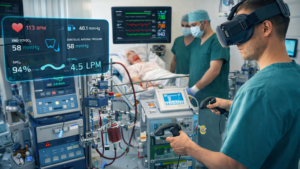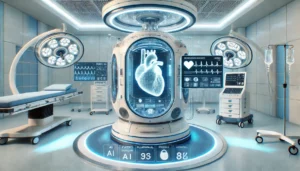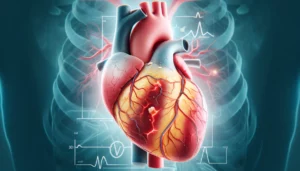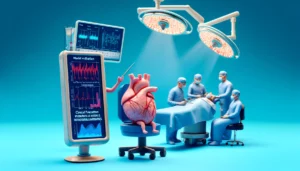
Building an Extracorporeal Membrane Oxygenation Digital Twin Using High-Resolution Patient Data: An Artificial Intelligence Model for Virtual Reality Simulation 
In this multicentre study of 335 ECMO patients, high-resolution device and electronic health record data were integrated to develop a two-stage artificial intelligence model capable of simulating ECMO circuit behavior and patient physiological responses. The digital twin was deployed in a virtual reality platform with real-time inference. Expert evaluation confirmed clinically coherent responses, supporting scalable, high-fidelity ECMO training without dedicated hardware.










